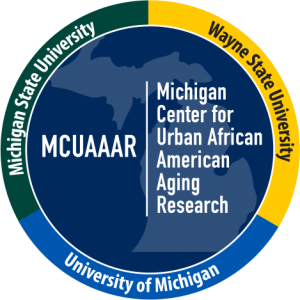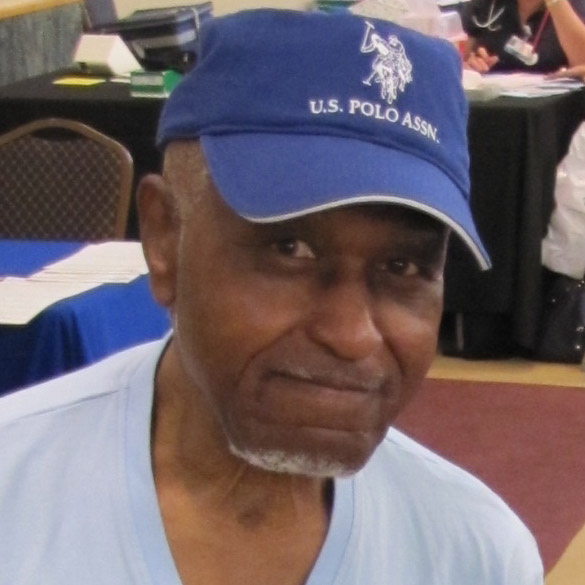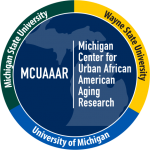
Michigan Center for Urban African American Aging Research
The Michigan Center for Urban African American Aging Research (MCUAAAR) is a 26-year-old collaborative research, community outreach, and faculty mentoring program based at Wayne State, Michigan State and the University of Michigan. Under the leadership of a coordinating center, it is one of eighteen national Resource Centers for Minority Aging Research (RCMAR) and specialized Alzheimer’s focused projects funded by the National Institute on Aging to increase and enhance the diversity of the future scientific research workforce; mentoring promising new faculty and research scientists from under-represented groups for sustained careers in aging-related behavioral research.
Congratulations

Dr. Jacquelyn Taylor on Your New R01 Grant!!!
Jacquelyn Taylor, PhD, RN, CPNP, NAM, FAAN, FAHA is the Helen F. Petit Professor of Nursing at Columbia University, and also a former (2005) MCUAAAR Scientist. She and Dr. Maxim Topaz are Multiple Principal Investigators of an R01 grant award from the National Institute on Minority Health and Health Disparities for their study entitled, “Identifying and Reducing Stigmatizing Language in Home Healthcare: The ENGAGE Study”. The specific aims of this 4-year study, funded for $2.6 million, are to…
Publications
James S. Jackson and the Program for Research on Black Americans: Contributions to Psychology and the Social Sciences
Abstract
James S. Jackson (1944–2020) is remembered as a groundbreaking social psychologist whose career contributions in scholarship, research, and service were fundamental to the field of psychology. This article briefly outlines his career-long work and contributions. A strong believer in interdisciplinary work, his research spanned other related social science disciplines (e.g., sociology, political science), as well as health and social welfare professions (public health, social work…
Latest News

The MCUAAAR Hosted Webinar for HBCU Partners
Researchers often start with the arduous task of gathering data, but tapping into high-quality data sets that have already been collected can be a fast and invaluable way to survey the field, explore topics, and test ideas. By stewarding secondary data, ICPSR serves the purpose of providing social scientists with rich and broad data resources that are high in quality and publicly accessible.
The webinar was convened at the request of MCUAAAR’s HBCU partners at Howard and Prairie View A&M Universities to help faculty and students learn how to access secondary datasets from the University of Michigan. Dr. James McNally, Director of the National Archive of Computerized Data on Aging (NACDA) and…
Community Partners

Eugene Odom: Long-Serving CAB Member
Mr. Eugene Odom has been a Community Advisory Board member since 2003. Born in Ohio, Mr. Odom came to Detroit at age four and continues to live there today. His career was interesting and varied. He first worked at Cadillac Motor, then served as a court liaison for 10 years in the Wayne County Substance Abuse Department, and then transitioned to a career in life insurance for several years before retiring.
As one of the longest serving Advisory Board members, Mr. Odom has brought great wisdom and leadership to the Healthier Black Elders Center. He was inspired to…
